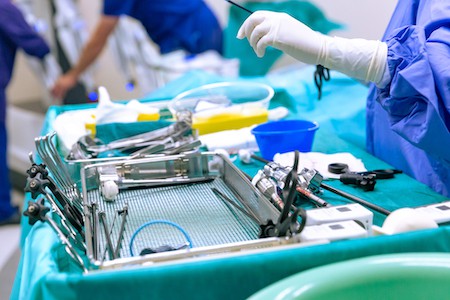What is a gallbladder?
The gallbladder is a small pear shaped organ that sits underneath the liver on the right side of the abdomen. The liver produces bile every day to help in the process of digesting fats. This bile is stored in the gallbladder. When you eat fatty foods, the gallbladder squeezes stored bile into the small intestine through the bile ducts.
Although bile aids in digesting fats, the gallbladder itself is not essential, and gallbladder removal would cause no observable problems in a healthy individual.
Recognising gallbladder problems
When inflamed, the gallbladder can cause abdominal pain, nausea/vomiting and fever. The gallbladder becomes inflamed when gallstones block it up or otherwise irritate the lining of the gallbladder. Gallstones are hardened digestive fluids that form in the gallbladder. The medical term for gallstone formation is cholelithiasis. If gallstones leave the gallbladder, they can block the bile duct, resulting in a backup of bile, causing the bile ducts or pancreas to become inflamed. The medical term for a gallstone in the common bile duct is choledocholithiasis.

Gallbladder Testing
The most common symptoms of cholecystitis are:
- Sharp pain in the right abdomen
- Low fever
- Nausea and bloating
Other common additional tests include:
- Blood tests
- Liver function tests
- Coagulation profile
- Abdominal ultrasound
- HIDA scan
- ERCP
- MRCP
If you are suffering from any of these symptoms, you should seek medical attention. Your health care provider/doctor will ask about your medical history and give you a physical exam, addressing your areas of pain or stomach problems.
Gallstones Treatment
Non-Surgical Gallstones Treatment
Patients who present with gallstones, but no pain or symptoms, may not require surgery. To reduce the risk of forming gallstones, general advice is to increase exercise (exercising for 2 to 3 hours a week can reduce your risk of developing gallstones) and reduce consumption of foods that are high in sugars and carbohydrates (like pastries, white bread, donuts) and fats, and to increase fruit and vegetable intake.
Medications can be administered (by mouth) to help to dissolve gallstones. However this treatment can take a long time, may not be completely effective and is often only reserved for those patients who can’t undergo gallbladder surgery.
Gallbladder Surgery (Cholecystectomy)
Gallbladder removal is the recommended treatment for pain as a result of gallstones. Gallbladder removal operation is called a Cholecystectomy.
If you would like to know more about our gallstone treatment options or about the cholecystectomy procedure, you can find out more by clicking the links below.
If you would like to know more about our gallstone treatment options or about the cholecystectomy procedure, you can find out more by clicking the links below.


Gallbladder Cancer
Gallbladder cancer is most common in those who have or have had gallstones in the past. The gallbladder’s small size and location makes it easier for cancer to grow, undetected, and often patients display no specific signs or symptoms. Although gallbladder cancer is rare, most are discovered at a late stage when prognosis can be poor.
If you would like to make an appointment to discuss gallstone treatment options, gallbladder surgery or gallbladder cancer treatment, you can use our online booking system or call our practice on (03) 9509 4811 to make an appointment

